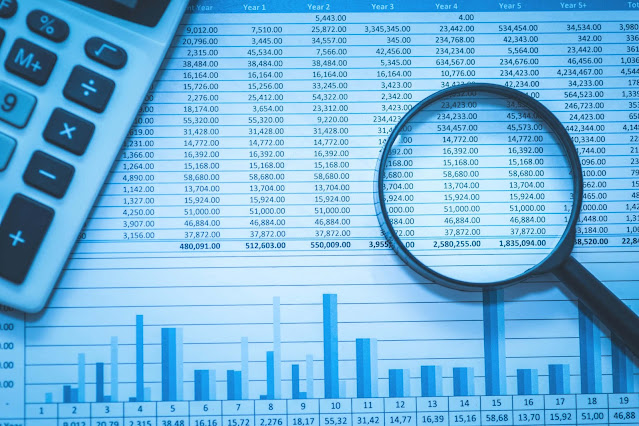If you've ever delved into the world of commerce or industry, you've probably come across the term "goodwill." It's more than just a friendly gesture; it's a concept that holds significant value. In this article, we'll explore what goodwill is made of and how it affects various aspects of business dealings.
Unraveling Goodwill's Composition
Goodwill is like a secret recipe; it's a blend of tangible and intangible ingredients. Let's break it down:
- Tangible Elements
Think of tangible elements as the physical, touchable aspects of goodwill. These are the bricks and mortar of your enterprise. They include items such as walls, equipment, furniture, and anything you can see and touch. They're the concrete foundations of your business.
- The Intangibles
In contrast, intangible elements are like the invisible magic that makes your business unique. They can't be measured in physical terms but are invaluable. Examples include the reputation of your brand, a loyal customer base, a prime commercial location, or a distinct sign adorning your establishment.
The Power of Pledging Goodwill
Now that we understand what makes up goodwill, let's discuss an important aspect of it - pledging.
- Goodwill Pledging
Pledging goodwill is akin to offering a safety net to a creditor when you need financial support for your business. It's not just a verbal promise; it's a legally registered contract. In this contract, you pledge the intangible aspects of your business, like your clientele, brand reputation, name, and lease rights, as collateral. This serves as a guarantee to the creditor, ensuring they have a claim to these assets if you fail to repay your debt.
This pledge can be initiated through a court order, especially when the debtor's situation poses risks or when the requested credit isn't directly linked to a specific investment.
Navigating the Sale of Goodwill
Selling or buying goodwill isn't as straightforward as exchanging goods at a market. It involves a thorough understanding of its components, both tangible and intangible. It's highly advisable to seek professional guidance, like a notary, to facilitate the process.
Valuing Goodwill: The Art and Science
Valuing goodwill is a mix of art and science. There are various methods, but the most commonly used one is the professional scales method. This method revolves around the business's turnover generated by the seller. The seller should grant the buyer access to their financial records from the last three years. These records provide insights into what to expect regarding future turnover when the business transitions.
The professional scales method involves applying a percentage to the seller's turnover based on the nature of the business. While there's no official scale, experienced professionals may have their own calculations.
However, valuing goodwill goes beyond numbers; it must also consider qualitative criteria, such as:
- Materials, Tools, and Inventory: Assess the quality of the assets you're acquiring and how efficiently the stock flows.
- Location and Environment: The business's surroundings play a crucial role in determining its value. Factors like transport accessibility and future developments in the area are vital considerations.
- Customer Management: Understanding how the previous owner managed customer relationships is key to maintaining and building on existing loyalty.
Closing the Deal
Once both parties agree on a price, it's advisable to formalize the deal. You can do this by signing a memorandum of understanding or a promise to transfer the business. While not mandatory, these documents provide clarity and assurance. Alternatively, you can proceed directly to the contract signing.
Don't forget to involve an accountant in the final stages of the purchase. They can help you analyze the accounts, ensuring a smooth transition.
Conclusion
Goodwill is more than a vague notion; it's a blend of the tangible and the intangible, the concrete and the invisible. It plays a vital role in business, offering a safety net to creditors and impacting the buying and selling of businesses. To navigate this complex terrain, seek professional guidance and carefully consider qualitative criteria. Remember, a notary and an accountant can be your best allies in this journey.
FAQs
What's the significance of goodwill in business transactions?
Goodwill holds both tangible and intangible value in business dealings. It serves as collateral when securing credit and affects the sale and purchase of businesses.
How is goodwill valued, and what's the professional scales method?
Goodwill is valued using various methods, with the professional scales method being one of the most common. It involves applying a percentage to the seller's turnover, guided by the nature of the business.
What are the qualitative criteria to consider when valuing goodwill?
In addition to financial aspects, qualitative criteria include assessing the quality of assets, evaluating the business's location and environment, and understanding the previous owner's customer management.
Do I need a notary and an accountant when dealing with goodwill?
It's highly recommended to involve a notary when drawing up contracts and an accountant to analyze financial records before finalizing the purchase.
Can I proceed directly to a contract signing when buying or selling goodwill?
While it's not mandatory, it's advisable to sign a memorandum of understanding or a promise to transfer the business before the final contract signing for added clarity and assurance.







0 Comments